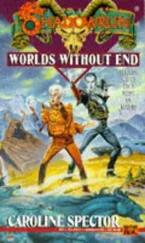He was not sure he meant it, but she took him at his word. “Go to hell, then,” she swore. She got to her feet and stomped upstairs.
He stayed where he was, panting. Now that he had rejected her, he regretted it.
Apprentices were not very attractive to young women, who did not want to be forced to wait years before marrying. All the same, Merthin had courted several Kingsbridge girls. One, Kate Brown, had been sufficiently fond of him to let him go all the way, one warm summer afternoon a year ago, in her father’s orchard. Then her father had died suddenly, and her mother had taken the family to live in Portsmouth. It was the only time Merthin had lain with a woman. Was he mad to turn down Griselda’s offer?
He told himself he had had a lucky escape. Griselda was a mean-spirited girl who did not really like him. He should be proud of having resisted temptation. He had not followed his instinct like a dumb beast; he had made a decision, like a man.
Then Griselda started to cry.
Her weeping was not loud, but all the same he could hear everything. He went to the back door. Like every house in town, Elfric’s had a long, narrow strip of land at the back with a privy and a rubbish tip. Most householders kept chickens and a pig, and grew vegetables and fruits, but Elfric’s yard was used to store stacks of lumber and stones, coils of rope, buckets and barrows and ladders. Merthin stared at the rain falling on the yard, but Griselda’s sobbing still reached his ears.
He decided to leave the house, and got as far as the front door, but then he could not think where to go. At Caris’s house there was only Petranilla, who would not welcome him. He thought of going to his parents, but they were the last people he wanted to see when he was in this state. He could have talked to his brother, but Ralph was not due to arrive in Kingsbridge until later in the week. Besides, he realized, he could not leave the house without a coat – not because of the rain, he did not mind getting wet, but because of the bulge in front of his clothing that would not subside.
He tried to think of Caris. She would be sipping wine, he thought, and eating roast beef and wheat bread. He asked himself what she was wearing. Her best dress was a soft pinkish-red with a square-cut neckline that showed off the pale skin of her slender neck. But Griselda’s crying kept intruding on his thoughts. He wanted to comfort her, to tell her he was sorry to make her feel spurned, and explain to her that she was an attractive person but they were not right for one another.
He sat down, then stood up again. It was hard to listen to a woman in distress. He could not think about scaffolding while that sound filled the house. Can’t stay, can’t leave, can’t sit still.
He went upstairs.
She was lying face down on the straw-filled palliasse that was her bed. Her dress was rucked up around her chubby thighs. The skin on the back of her legs was very white and looked soft.
“I’m sorry,” he said.
“Go away.”
“Don’t cry.”
“I hate you.”
He knelt down and patted her back. “I can’t sit in the kitchen and listen to you crying.”
She rolled over and looked at him, her face wet with tears. “I’m ugly and fat, and you hate me.”
“I don’t hate you.” He wiped her wet cheeks with the back of his hand.
She took his wrist and drew him to her. “Don’t you? Truly?”
“No. But…”
She put her hand behind his head, pulled him down, and kissed him. He groaned, more aroused than ever. He lay beside her on the mattress. I will leave her in a moment, he told himself. I’ll just comfort her a little more, then I’ll get up and go down the stairs.
She took his hand and pushed it up her skirt, placing it between her legs. He felt the wiry hair, the soft skin beneath, and the moist divide, and he knew he was lost. He stroked her roughly, his finger slipping inside. He felt as if he would burst. “I can’t stop,” he said.
“Quickly,” she said, panting. She pulled up his shirt and pushed down his drawers, and he rolled on to her.
He felt himself losing control as she guided him inside her. The remorse hit him before it was over. “Oh, no,” he said. The explosion began with his first thrust, and in an instant it was finished. He slumped on top of her, his eyes closed. “Oh, God,” he said. “I wish I was dead.”
Buonaventura Caroli made his shock announcement at breakfast on Monday, the day after the big banquet at the guild hall.
Caris felt a little unwell as she took her seat at the oak table in the dining hall of her father’s house. She had a headache and a touch of nausea. She ate a small dish of warm bread-and-milk to settle her stomach. Recalling that she had enjoyed the wine at the banquet, she wondered whether she had drunk too much of it. Was this the morning-after feeling that men and boys joked about when they boasted how much strong drink they could take?
Father and Buonaventura were eating cold mutton, and Aunt Petranilla was telling a story. “When I was fifteen, I was betrothed to a nephew of the earl of Shiring,” she said. “It was considered a good match: his father was a knight of the middling sort, and mine a wealthy wool merchant. Then the earl and his only son both died in Scotland, at the battle of Loudon Hill. My fiance, Roland, became the earl – and broke off the engagement. He is still the earl today. If I had married Roland before the battle, I would now be the countess of Shiring.” She dipped toast in her ale.
“Perhaps it was not the will of God,” said Buonaventura. He threw a bone to Scrap, who pounced on it as if she had not seen food for a week. Then he said to Papa: “My friend, there is something I should tell you before we begin the day’s business.”
Caris felt, from his tone of voice, that he had bad news; and her father must have had the same intuition, for he said: “This sounds ominous.”
“Our trade has been shrinking for the last few years,” Buonaventura went on. “Each year my family sells a little less cloth, each year we buy a little less wool from England.”
“Business is always like that,” said Edmund. “It goes up, it goes down, no one knows why.”
“But now your king has interfered.”
It was true. Edward III had seen the money being made in wool and had decided that more of it must go to the crown. He had introduced a new tax of one pound per woolsack. A sack was standardized at 364 pounds weight, and sold for about four pounds in money; so the extra tax was a quarter of the value of the wool, a huge slice.
Buonaventura went on: “What is worse, he has made it difficult to export wool from England. I have had to pay large bribes.”
“The ban on exports will be lifted shortly,” Edmund said. “The merchants of the Wool Company in London are negotiating with royal officials-”
“I hope you are right,” Buonaventura said. “But, with things as they are, my family feels I no longer need to visit two separate wool fairs in this part of the country.”
“Quite right!” said Edmund. “Come here, and forget about the Shiring Fair.”
The town of Shiring was two days’ travel from Kingsbridge. It was about the same size, and while it did not have a cathedral or a priory, it boasted the sheriff’s castle and the county court. It held a rival Wool Fair once a year.
“I’m afraid I can’t find the range of wool here. You see, the Kingsbridge Fleece Fair seems to be declining. More and more sellers go to Shiring. Their fair offers a greater variety of types and qualities.”
Caris was dismayed. This could be disastrous for her father. She put in: “Why would sellers prefer Shiring?”
Buonaventura shrugged. “The guild merchant there has made the fair attractive. There’s no long queue to enter the city gate; the dealers can hire tents and booths; there’s a wool exchange building where everyone can do business when it rains like this…”
Читать дальше












